#disney’s hunchback is still my main go to film when talking about family films that should have gotten a pg rating
Text
“Animated Family Films Made After 1968 That SURPRISINGLY Got G-Ratings” Starter Pack
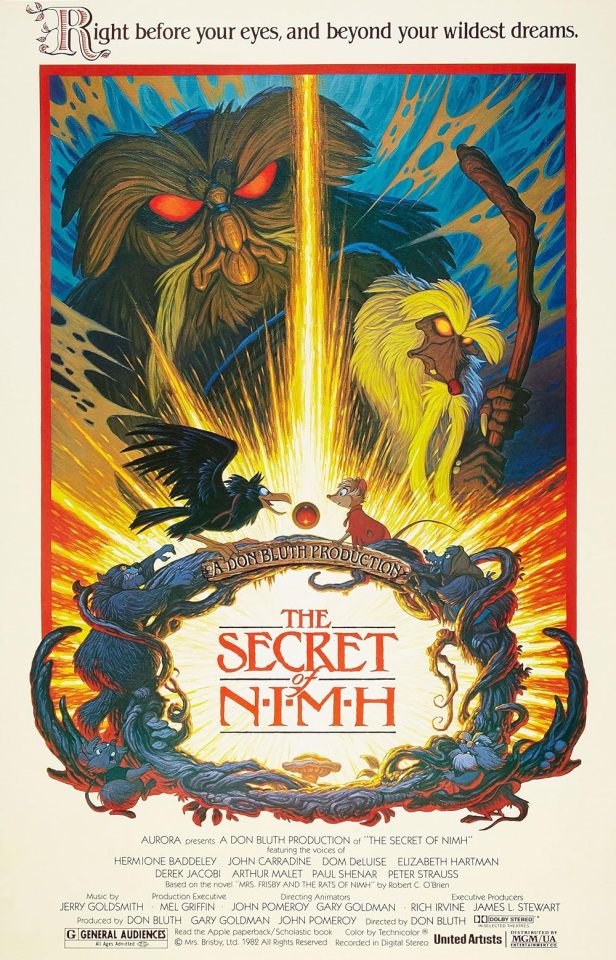
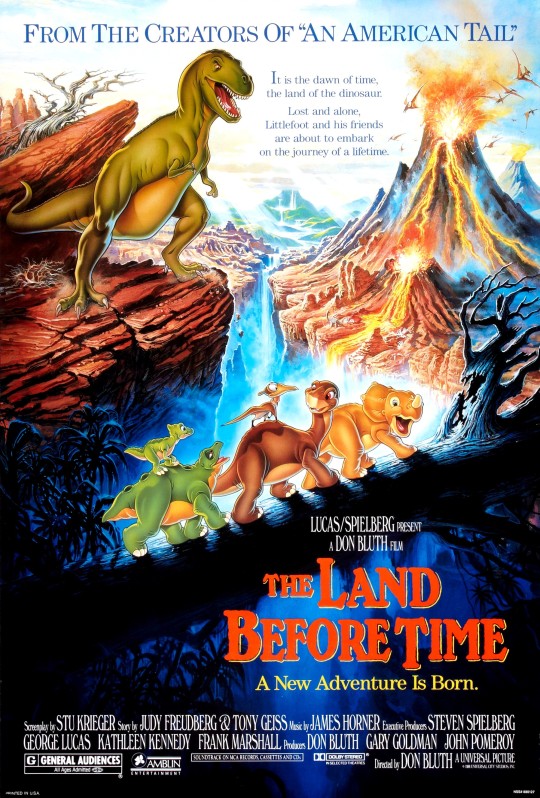
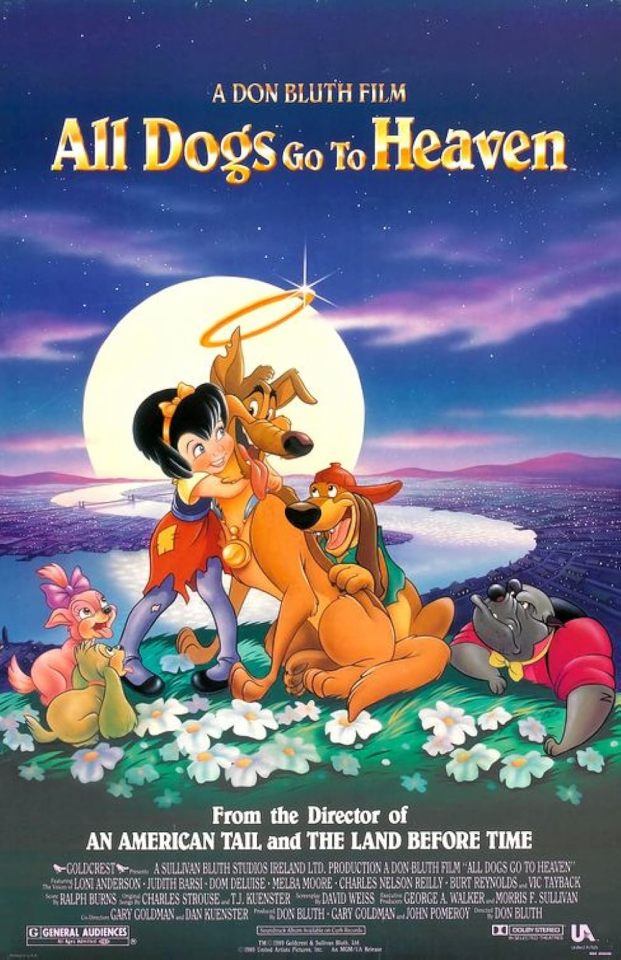
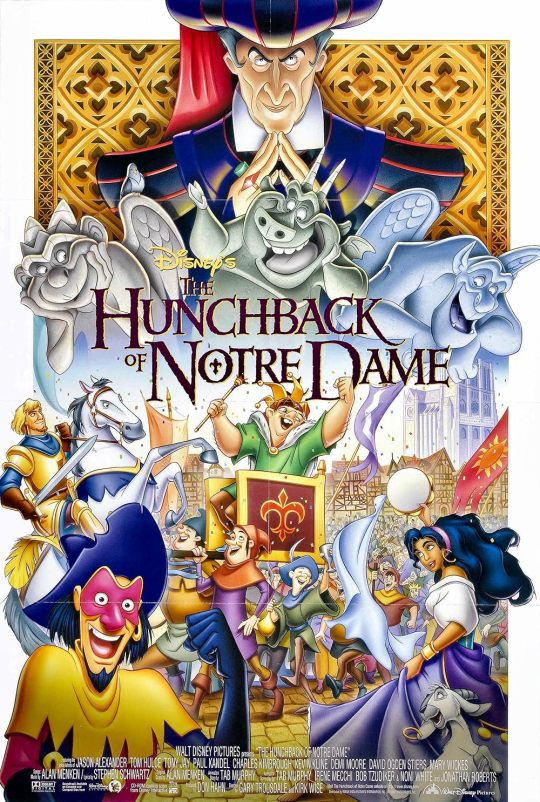
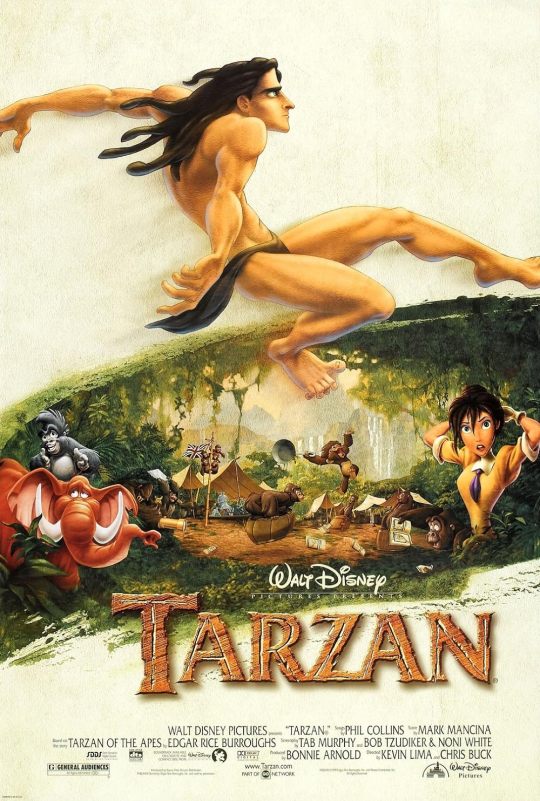
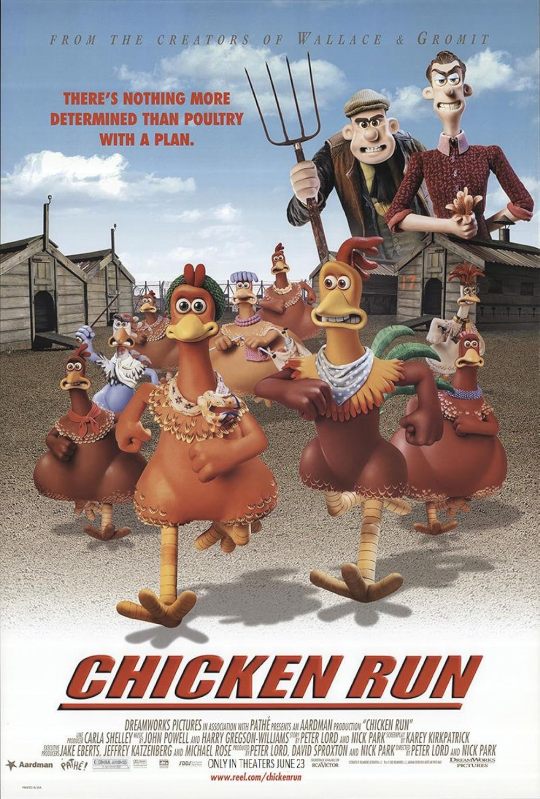
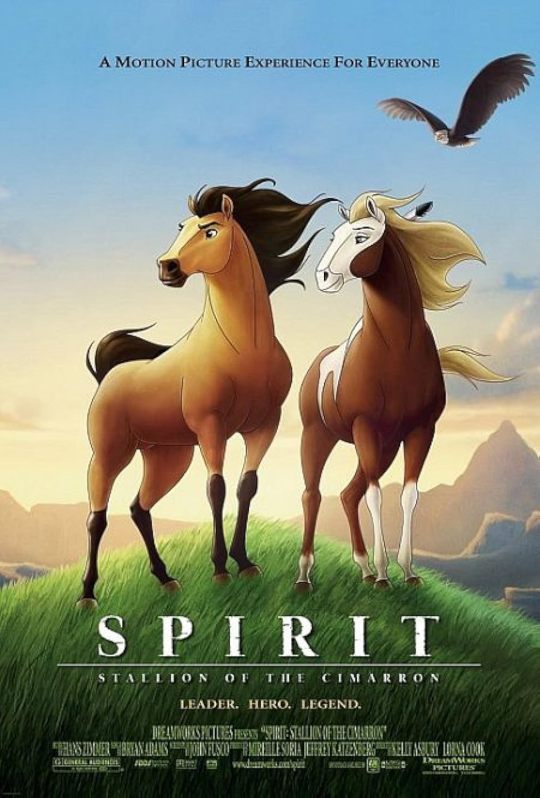
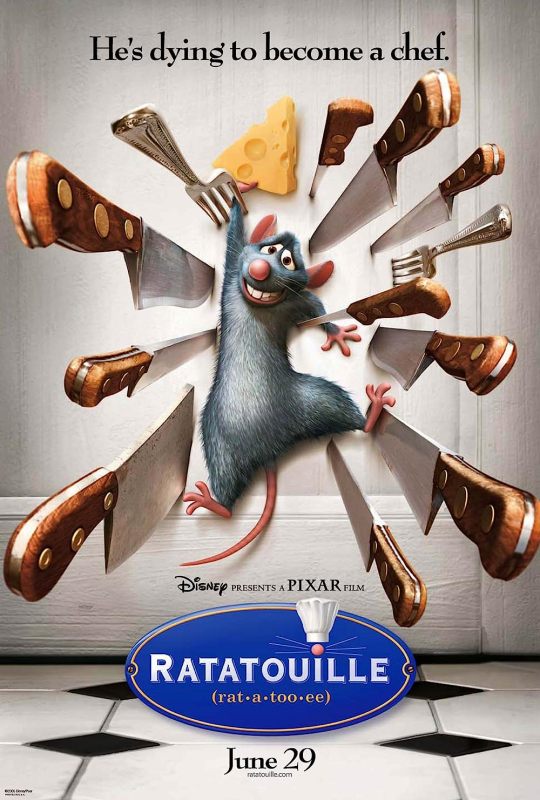
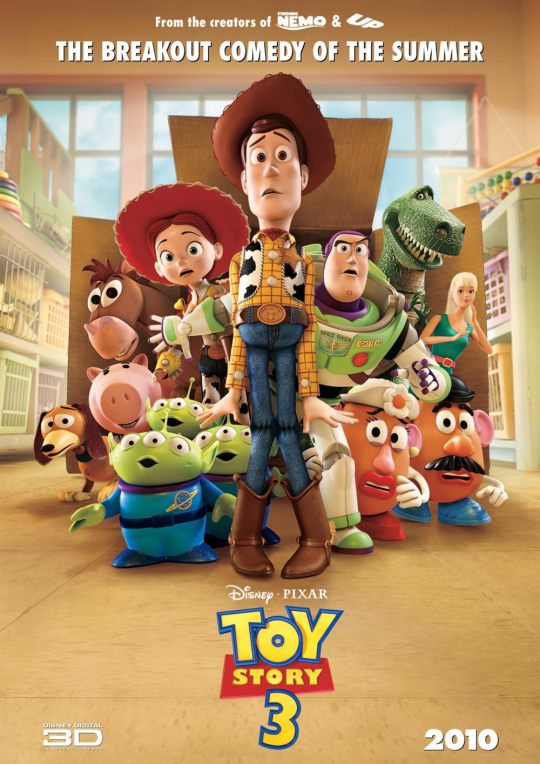
(Before anyone points it out, yes, I am aware that The Land Before Time and All Dogs Go to Heaven were edited before their releases to avoid getting PG ratings).
#the mpa rating system is a joke now but it’s still interesting what some g rated movies got away with#disney’s hunchback is still my main go to film when talking about family films that should have gotten a pg rating#mpa#mpaa#motion picture association#motion picture association of america#animated films#family films#the secret of nimh#the land before time#all dogs go to heaven#the hunchback of notre dame#tarzan#chicken run#spirit: stallion of the cimarron#ratatouille#toy story 3#don bluth#disney#dreamworks#pixar
75 notes
·
View notes
Text
Screenwriter Tab Murphy Talks “Hunchback,” “Atlantis” and “Brother Bear” During Walt Disney Family Museum Happily Ever After Hours
by Tony Betti | Source (x)
Over the weekend I had the fortunate opportunity to attend the Walt Disney Family Museum’s Happily Ever After Hours Virtual Program featuring screenwriter Tab Murphy.
Tab Murphy has a wide embodiment of work for the screen, but this program primarily focused on his work for what is now known as Walt Disney Animation Studios. He contributed to The Hunchback of Notre Dame, Tarzan, Atlantis: The Lost Empire, and Brother Bear.
Right off the bat, Tab said that his first foray into animation was a bit jarring. He wrote the script, and then partnered with Alan Menken and Stephen Schwartz who, as he put it, had the script posted on walls all around a room and would then go up to certain sections and draw big Xs through the words and say “this is where we think a song should be.” As they worked together though, Tab said he realized how right they were to do that, and the end result is simply amazing.
Anybody familiar with the original story of The Hunchback of Notre Dame may recall that there are a ton of characters present in the original novel aside from the namesake Hunchback, Quasimodo. He said that was where one of the hardest parts of writing the movie adaptation lied, especially for a Disney animated film, noting that there was a certain “checklist” of sorts for a Disney film that the characters had to hit. So they developed the film around the characters that would best fill the roles of the principal lead (Quasimodo), the Hero (Phoebus), and the Princess (Esmeralda), along with the obvious villain, Claude Frollo. He said that the story was exceptionally dark for a Disney film, but he found the heart in it when you would take away everyone else leaving Quasimodo to do his own thing with the birds or the gargoyles, and the world got bright and colorful. This sentiment is actually echoed in the production design of the film, whenever Frollo is present, the colors are grays and dark shadows, and muted and boring hues, but whenever Quasi is involved in his own thing there are far more colors and brightness.
He also elaborated on his love for writing the character of Esmeralda, saying he felt that she was Disney’s original activist, and she was most definitely not a damsel in distress, standing up for the issues, with Tab citing the line (though he flubbed it a little) “You mistreat this poor boy the same way you mistreat my people. You speak of justice, yet you are cruel to those most in need of your help!”
When asked about the development of Quasimodo, Tab pointed out that more classic adaptations of the story, such as an earlier incarnation from Universal in their horror movie craze, took the character and turned him into a literal monster, some sort of terrifying creature. “This is a human being,” Tab said, adding that his version would not scare you but draw out empathy. But he still had to be realistic. He couldn’t be the hero either, that wouldn’t be true to the source material, but he echoed thoughts and ideas shared by animator James Baxter in a recent program from the museum, that he needed to be gentle and warm to reinforce that this was a human and not a monster.
Interestingly, Tab said that he had not watched the film in its entirety since the world premiere back in 1996 up until about two weeks before the program, forgetting how beautiful the final product turned out. He said he cried his eyes out and believes that story holds up because of that emotion, something that everyone can relate to at some point in their lives, that they’re different and feeling alienated and an outsider who overcomes that. “Everyone who worked on that movie, everyone was on their A-game.”
After Hunchback, Tab was assigned to tackle Tarzan, though he openly admitted he wasn’t as involved in that one as much as people think he was. Shortly after he began, Gary Trousdale and Kirk Wise (directors of Hunchback) asked him to join their team for a radical new movie that would buck the trends of Disney Animation, Atlantis: The Lost Empire. According to Tab, the pair pitched him the idea while comparing it to Disneyland, saying “You know how you go in to [the park] and go right into Fantasyland, through the castle, see the princesses and fairy tales. Well, we’re going to take a hard left straight to Adventureland.”
Tab was excited, this was going to be something so out of the ordinary and he would be a part of it. He noted that he was especially excited because of the subpods that would shoot out of the Ulysses. At another point in the session, Tab mentioned that he was never worried about budget when writing for Disney animation, noting that the animators were so good they would figure out how to get what he wrote onto the screen successfully, with the Subpods off the main submarine as they battled the Leviathan an excellent example of that. He also elaborated on what he referred to as “movie moments,” those special quotes that you know, when writing them, people will always remember and associate with the movie, with Atlantis having one of his favorites, when Helga is firing the flare gun at Roarke’s balloon and uses his own words, “Nothing personal.”
As many know, the film was not an immediate box office success. It didn’t do poorly, it just didn’t reach the numbers that Disney likes to see. Because of that, Tab thought he had written Disney’s first flop. The film came out in 2001, and he said it wasn’t until last year when he was stuck at home that someone had exposed him to the following that Atlantis: The Lost Empire has acquired over the years. He even started getting letters and messages from fans, some saying that the film had inspired them to be linguists or archeologists as those who were younger when they saw it are now adults exploring their career path.
Tab has an almost Jeff Bridges-like quality to him, almost channeling the Dude from The Big Lebowski, and elaborated on the sentiment of career paths, commenting that when he was in school, he was studying forestry and biology. In one of his best pieces of wisdom from the session, he said that “Part of knowing what you want is knowing what’s not meant for you.” It was his love of movies that continued to grow prompting him to get into the industry as a screenwriter. However, that background in forestry and wildlife would come in handy on his next assignment, Brother Bear.
Tab said goodbye to the kids, and jetted off to Florida for a short-term residence at the Yacht Club resort where he would go to the Animation studio that was part of the Disney-MGM Studios (now Disney’s Hollywood Studios) where Brother Bear was in production. Most of the original story, he said, was created from campfire stories that he and director Aaron Blaise would share. Together they wrote the original story which was mostly similar and had Kenai being transformed and subsequently mentored by an older bear named Grizz, voiced by Michael Clarke Duncan. He packed up and left and only after that did they change one prominent piece of the writing. Grizz would now be dropped for a younger bear, Koda, and that one “movie moment” as Tab says, where Kenai has to say the “he did something bad.”
Tab said the story of what happened on Brother Bear is truly the story of animation. It’s living and breathing. Things get dropped, added, changed, tweaked. He felt like a starting pitcher in a baseball game, there to set you up for success and then be moved or changed out to make sure the game is won, but also only one part of the greater team as a whole. When asked about how he would draw out emotion in his writing he said he would only put the words down, and it was the rest of that same team that would succeed in making you feel something, adding that he might have words that touch you emotionally in scene, but the rest of the team knew how to enhance those words and make it something truly special.
#tab murphy#the hunchback of notre dame#atlantis#atlantis the lost empire#brother bear#disney#quasimodo#esmeralda#frollo
28 notes
·
View notes
Text
Star Wars: Fatalism Against the „I Wish” Moment
Here it goes again, the question as to why The Rise of Skywalker sucked. Sigh. It just can’t leave me alone, can it?
After the first two chapters, honestly, I was expecting the sequel trilogy to become as good (or almost) as the original one. But precisely the last chapter set the seal on one of its worst problems: the lack of agenda.
I love musical theatre. And one of its most beautiful sides is that it teaches you so much about storytelling. Now what makes a story, a character truly compelling? The conflict. Without a conflict, something that has to shift the narrative from A to D going through B and C, nothing makes sense. And in a good story, the conflict is set up right from the start. We meet someone and we are supposed to identify with them due to their agency.
Heroes With An Agenda
To name an example, there is “Into the Woods”, one of my favorite musicals which retells some classic fairy tales with own interpretations and unexpected twists; and it opens with an iconic ensemble number called “I Wish”. (If you’re unfamiliar with it, you might want to check out the 2014 film.) We get to know a bunch of people who all want something, and we follow them through the narrative as some of them get their wish (though not exactly the way they expected it); then are confronted with the backlash, the consequences, the price to pay for the things they wanted.
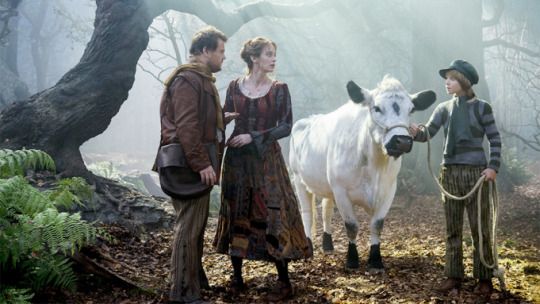
With Star Wars now belonging to Disney, it is only legitimate to make a few comparisons with Disney movies.
In The Little Mermaid, Ariel’s song is “Part of That World”, setting up her character as someone who wants for something that fascinates her: the world of humans.
Quasimodo, The Hunchback of Notre Dame, wants to leave his tower and live among other humans, even if only in for a day.
Belle from Beauty and the Beast is introduced to us explaining how she wishes to explore the world outside of the small village she’s living in.
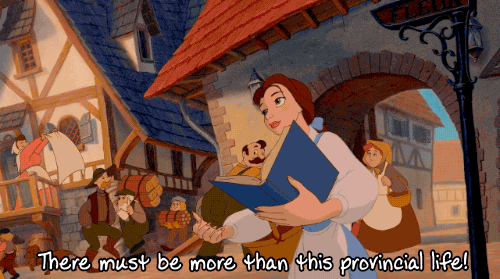
A somewhat disappointing Disney heroine was Merida in Brave: despite the films’ title, the story fails at making its protagonist compelling due to her lack of agenda. Merida knows what she does not want, i.e. becoming like her mother, because she’s a different kind of girl: but she does not know what she actually wants from life. It is quite fitting that in the end she manages to restore and improve the relationship to her mother but does not really change her, or her family’s or her kingdom’s situation. Merida does not grow up. Her story is nice enough, but not really compelling.
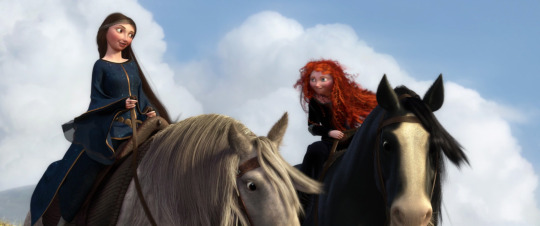
Disney “princesses” are often criticized for wanting nothing but a partner from life, and sometimes settling down with a man even if that was not their main goal at the start. But we have e.g. Moana, a girl who wants to help her family and her people and to restore balance in nature. Not surprisingly, her story is interesting and convincing.
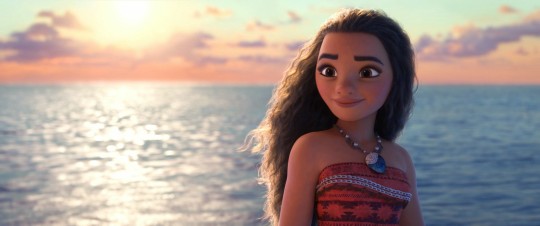
Antiheroes With An Agenda
Perspective is hugely important for a narrative: authors can use it in order to manipulate the audience’s perception of a story in order to make us identify with someone although he is a negative character. Two examples I came across with lately are Joker (Arthur Fleck) and Hannah from the Girls TV series. Both these characters have personal agendas that in the end don’t get their fulfilment.
We know from the beginning that Arthur will become the Joker, but the film follows him and his social background so closely that we watch everything from his point of view, which makes us sympathize with him despite what he becomes in the end.
Arthur is poor, mentally ill, in charge of a sick mother, friendless; but he believes he can make a great breakthrough as a comedian. He is at the bottom of the social scale and still believes he can make it to the top; it is only all too clear that he is deluded and that none of the people he admires would move a finger to help him. Though he becomes a criminal, his story is a tragedy; he was born and raised under circumstances that hardly offered him room for a simple, satisfying life. His dreams were all he had. Which is why we feel with him, even if from a moral standpoint we know we shouldn’t.
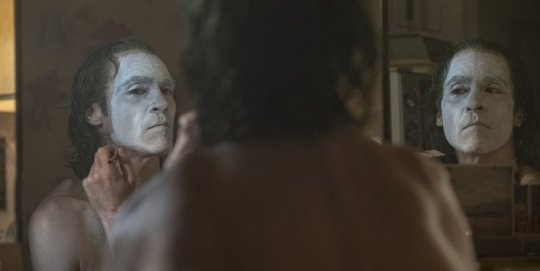
Hannah is a toxic personality if I ever saw one onscreen; but she officially is the protagonist, she’s female who wants a career, she has “friends”, she is “sexually independent”, so as female viewers we will automatically identify with her, or at least try. (Personally, after a while I came to the conclusion that about 75 % of the other character’s problems would quickly find an end if they simply shot Hannah and buried her without a funeral, with a few silver crosses to make sure she never comes back.)
However, Hannah is not from a poor family, she has an education, she has friends. She has things she wants, nothing she desperately needs, like Arthur needs employment or medication. Her whole attitude is subject to her desire to become a famous writer, so her story is about exploring and observing other people’s weaknesses, often even eliciting them for the worse. I find it interesting that when we learn how she first met Adam, he caught her stealing. Apparently, Hannah never understood that you can’t simply take but also have to give something back. Their relationship is so typical for the story because it looks like Adam is using her (mostly sexually), while she is using him in order to make “experiences”, playing with his feelings instead of giving him the chance to grow and mature into a responsible man. Girls always had a bleak undertone; but by manipulating our perspective making her the pivotal character, the authors made us care about Hannah although she is someone who did not deserve it in the first place.
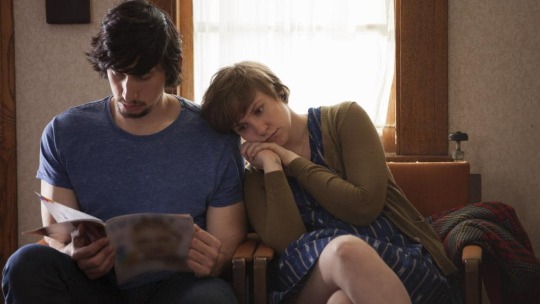
My guess: what makes these two antiheroes in the first place, from a moral perspective, is perhaps the fact that both feel entitled to their dream and won’t settle for less. Disney heroes usually get their wish fulfilment because they go through the moment of openly and innocently admitting their dreams without Arthur’s or Hannah’s latent arrogance.
Now to Star Wars... The Classics
One of the reasons why we so easily identify with Luke Skywalker in A New Hope is because he is introduced to us as someone who dreams. He has a personal wish - leaving his home planet, meeting new people, living adventures and contributing to the future of the galaxy. The “Binary Sunset” scene is not iconic without reason: in a musical, this would have been the moment where he would have broken into song. 😊
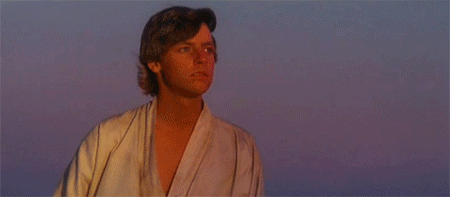
Don’t kill me, but Disney’s Hercules reminds me a little of Luke in his first grand scene: he also looks at a sunset, saying that he would go most anywhere to find where he belongs. (Maybe Lucas knew well why he sold the rights to Star Wars to the Disney studios of all places.)
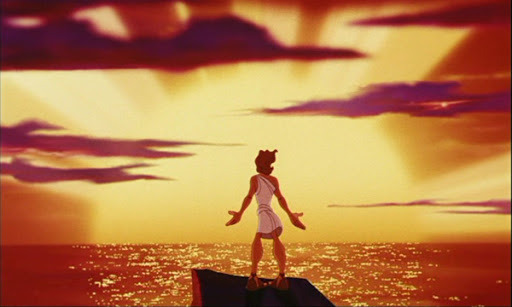
This continues through his other two films: Luke always has a strong agenda. He learns the ways of the Jedi through Obi-Wan (who interestingly never actually questions whether he wants that at all) and Yoda, but his first priority always are his friends. Saving who he loves is what drives him on all of the time, even if this may seem foolish at times - like traveling all alone to Bespine where Han and Leia are kept hostage, or wanting to save his father although he is a dangerous criminal.
Star Wars In-Between
Rogue One and Solo are well-made, interesting films, too, because the protagonists know what they want. The Clone Wars is one long story explaining Ahsoka’s development from a Jedi to someone who relinquishes the Jedi’s ways. The Mandalorian wants to follow “The Way”, i.e. his code of honor, in order to help as many war foundlings as he can. This is what you need to do in order to make a story compelling.
Star Wars Prequels
One of the weaknesses which I see to this day in the prequels is that we so rarely witness someone’s personal agenda; the stories are more driven by the plot than by the persons. A few desires are hinted at and never pursued.
“I’m going to be the first to see all of them” (the stars). - Anakin in The Phantom Menace
“At last we will reveal ourselves to the Jedi. At last we will have revenge.” Darth Maul in The Phantom Menace
What became of Anakin’s desire to explore the galaxy? And revenge from what, if you please? I can understand that the Sith were a byproduct of the Jedi’s rejection of the Dark Side, their weaknesses all projected unto them: but this also is never explored.
What did Anakin, Padmé, Obi-Wan, Qui-Gon etc. want, after all? When did they ever say or show clearly what they wanted, and what they would do for the purpose? Qui-Gon wants to train Anakin by will of the Force, Obi-Wan wants to train him because Qui-Gon asked him to. The Jedi want to keep the status quo of the Republic and the Jedi Order. There is no actual heart-felt wish from their side. The only person relentlessly pursuing his aims is Palpatine, the mastermind behind the stage.
Padmé has her political aims, but they are not a really personal agenda for her. She wants to help people who were enslaved or hungry or otherwise suffering, but she does not know such situations from own experience. Her personal wish is having a family, but in her case it is not as passionate as in Anakin’s, who had lost the only family he had with his mother. Add to this that the scene where she talks with Anakin about this desire of hers was unfortunately cut out from Attack of the Clones.
The compassionate and protective Anakin wants to keep the ones he cares for safe. Interestingly though, the films rarely show us his perspective, we usually rather see other people reacting to him; and since the Jedi always brainwash him not to “let his personal feelings get in the way”, Anakin comes over more as a whiny brat than as a conflicted human being we can sympathize with.
Revenge of the Sith is, though a terrible story, a very well-made film and emotionally very demanding because Anakin finally takes his destiny into his own hands. But it is also not very satisfying, because he wants to prevent things from happening and doesn’t actually have a definite, positive aim in mind. Still when he speaks to Padmé on Mustafar he tells her that he would overthrow Palpatine for her and rule the galaxy according to their wishes; but even in this moment he sounds insecure and confused, and his ideas are everything but clear.
The Sequels
The same procedure all over again. Finn wants to get away from the First Order, but where does he want to go? It is only hinted at that he wants a girlfriend (“Do you have a boyfriend?”), and not thematized again. Poe already is a Resistance fighter from the start, no personal aim there either. Rey wants her family back: she does nothing but waiting. On Takodana, we literally see her running from her fate after her vision with the Skywalker legacy sabre. In The Last Jedi, she says she needs someone to show her her place. She says to Luke that she is afraid. Again, she has no agenda.

Kylo was pursuing Luke, but why? What exactly had happened between uncle and nephew before the fatal night at the Temple, why was Kylo’s resentment so deep? He killed his father because he was coerced; he did not actually want it. Later he wanted Rey, but why, if she was almost always aggressive towards him?
The Last Jedi finally seemed to make up for all of these lacks. Rose was such a powerful character because while she always did everything in her power for the cause, she never forgot or let go of her personal feelings and desires, like keeping Finn safe, inspiring hope in the Canto Bight children, freeing the fathiers.
The moment Rey ships herself on the Supremacy, Ben kills Snoke and then both team up against the Praetorian Guards is so powerful because both of them, at last, have an agenda, and they pursue it together. It’s a moment of relief for the audience, what we had been waiting for all along: finding out what all of this was about - the Force working in balance. Naively, many of us then assumed this trilogy would be about Ben and Rey finding balance and a happy ending together.
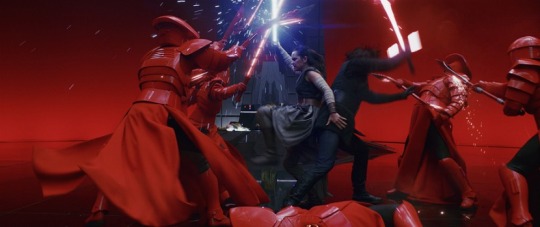
Then The Rise of Skywalker made our frustration flare up again. Rey wants to become a Jedi because Leia expects her to; she kills Palpatine because he wants her to do it; the voices of all Jedi encourage her… great. No personal agenda all over again. Ben saves her from death because he loves her, very well. Then he dies. Han, Leia and Luke all wanted him to come “home”, i.e. back to the Light Side, and they died for the purpose. It seems wanting something is dangerous in itself in this galaxy. And Rey ends up alone on Tatooine. Again, what does she want there?
So It Was All... Fate?
Han, Leia and Luke were much more compelling characters than Rey - their aims were sometimes misguided, but at least they had them and they were clearly defined. Even Palpatine has an aim: it is veiled (typically for him), but it is there. He knows that his spirit will live on in the person who manages to kill him. So, he is still more powerful than Rey. It looks like Rey defeated him, but the truth is that he used her naïve faith that she could erase him by killing him in order to reach his own aim: living on in a younger, more innocent person who believes that being a “Jedi”, she is doing the right thing.
We may of course argue that the Force is behind all of this; but as intriguing as the Force is, it is not a person. When we follow a story, we want living persons to think and feel and suffer and be hopeful and joyful for. It is all very well if characters want different things or maybe want the wrong things; but at least, their wishes ought to be understandable, and if they don’t come true, we would like to know why, instead of being left with... “reasons”. It is hard to identify with a character if we never learn what drives them after all. I daresay it would be more satisfying to see them pursue an aim and fail, than never to understand what they’re about, what their heart’s wish is.
I have argued over and over that the ways of the Jedi, i.e. sacrificing everything to a cause, and individual aims are naturally opposite to one another. If there will ever be Balance, future Force-sensitive creatures must find a way in between. But again, this is not openly said and the audience has to either resign to the fact that the films are badly made, or to scavenge them for months searching for messages. Of course, there is nothing wrong with using ones’ own brains. But I would like to leave a cinema after a Star Wars film feeling satisfied. The Rise of Skywalker did not only leave many questions unanswered; in many instances, it did not even start posing the questions.
“Into the Woods” is not a story with a happy ending. One of its messages is that you need to be careful about what you wish for, but I think that’s all right if the moral implications of getting one’s wish are explored. Which with the Star Wars prequels and sequels was not the case - people suffer and die for decades, and in the end, the story goes nowhere. The events of the prequels took place because “they were meant to”; same with the sequels. Anakin turned evil because it was his fate, his grandson the same because it was fate, Rey took over the Jedi mantle although she is not in the least suited for it, but it was her fate so we have to accept it. No wonder everyone is disappointed.
Star Wars saga, what do you have in store next? After more than 30 years, I dearly hope, someone who actually has an aim and purses it this time. And doesn’t have to die in the process, thank you very much.
#star wars#the rise of skywalker#the last jedi#the force awakens#kylo x rey#ben solo#kylo ren#star wars sequels#star wars prequels#the phantom menace#attack of the clones#revenge of the sith#darth maul#emperor palpatine#rose tico#han solo#luke skywalker#stephen sondheim#musical theatre#into the woods#narrative#the little mermaid#beauty and the beast#the hunchback of notre dame#anakin skywalker#padme amidala#arthur fleck#joker#girls hbo#hannah horvath
29 notes
·
View notes
Text
Letter to blogger- An issue with Elsa's character development in Frozen
First of all, I want to say I love Elsa as a character. I truly feel the emotional struggle she had to face due to her magical powers. However, the way her character arc is resolved at the end of movie feels under-developed to me for reasons I am about to explain.
In Frozen, Elsa’s character arc is driven by two things: her concern for her sister’s well-being, and the uncertainty of how the Arendellian society would react to the fact that she has magic. The first driver is well-explored throughout. The second, however, not so much. Because both drivers are presented as equally important for Elsa’s character arc at the beginning of the movie, the lack of exploration of the second driver makes the resolution of Elsa’s character arc seems under-developed.
Despite a strong emphasis on Elsa’s concern regarding how people outside her family would think of her magic, the movie never really presented how people actually feel about Elsa’s powers in a substantial manner. There is no meaningful follow-up on the Arendellian people’s attitude towards Elsa’s powers after she accidentally revealed it at the night of her coronation day until the very end- Were they generally afraid of it like the way the villagers in Beauty and the Beast was fearful of the Beast, or were they usual to such unusual phenomenon? While we do see over-antagonistic fear shown by individuals such as the Duke of Wesselton and his guards, these individuals are not representative of the Arendellian society. The only meaningful reaction from the Arendellian people towards Elsa’s magic is at the very end, when they were amazed and excited by her magic. While this is definitely a sensible good ending by itself for Elsa, lack of any significant sentiment shown by the Arendellian people prior to the ending creates a plot hole that I find too significant to ignore- were they generally welcome Elsa’s magic all along, or was it a product of a transformation from a more antagonistic attitude aided by a major plot event?
The ambiguous nature of the Arendellian society’s attitude towards Elsa’s magic is reinforced by the fact that the movie lacks any scene involving Elsa interacting with her people immediately after the thaw. Such scene would have been perfect to start resolving the conflict between Elsa and her people, ending with a touching and satisfying act of reconciliation like the ending of The Hunchback of Notre Dame. Perhaps the creators thought the act of thawing itself is good enough to convince the Arendellian people that Elsa’s magic can do them good, but does it make sense plot-wise? Looking at the whole story, the answer is clearly no, as such a good act is completely negated by the fact that Elsa caused the winter in the first place. Hence, Elsa’s act of thawing feels more like an obligation on Elsa’s part to clean up the mess she caused, rather than an opportunity to prove the worthiness of her magic to her people.
Having a clear understanding of how the Arendellian people reacted to Elsa’s magic throughout the movie is important, as it would drastically affect how we perceive Elsa- either she was overly pessimistic with how her people would react towards magic or she had successfully proven to her people that her magic could help them in ways they had never expected. I personally would have preferred the second scenario, as it would have made the ending much more fulfilling for Elsa.
In conclusion, I find the resolution of Elsa’s character arc under-developed due to absence of a coherent effort in tackling the issue of public sentiment towards magic, which is presented as a supposedly major factor of her emotional struggles. As a result, the Arendellian society’s attitude towards Elsa’s magic in the end of the movie feels unfulfilling and illogical at times. One possible way to deal with the public sentiment issue is to totally avoid it. This can be done by not making Elsa a ruler, so that only plot-relevant characters would be dragged into the conflict between the sisters, similar to The Snow Queen, resulting in less character arcs to resolve, as well as less plot holes. While this would, admittedly, force other good parts of the story to be rewritten, by having less themes competing with one another for emphasis, the story would have undoubtedly packed a bigger punch than the one that was eventually presented to us back in 2013 due to it being more compact and personal while remaining in line with the creators’ intended vision of the story.
I want to say I have to agree with the intention of this text and I can tell most people that sympathize with Elsa would agree as well. As I’ve seen others write or talk about how Elsa’s ending at the end of the first Frozen is quite under-developed. And her ending in the sequel is not any better either.
I also could say that as much as it pains me to write this, and it really does pain me, after so many years going back to watch Frozen one could say or notice or think that Elsa ends up being more a side character than a main or even secondary character. I always thought and saw Frozen as a movie with both sisters as protagonists. I thought that was Disney’s idea when they changed Elsa’s status as villain while working on the song Let It Go. But it seems I thought wrong. They still continued to make the first movie more about Anna than anything else. And adding the fact that after all these years I don’t find Anna that endearing anymore, it would appear not even the first film has aged very well with me.
Elsa and Hans still are, and will always be my favorite characters in this franchise. Doesn’t matter they clearly are the characters that suffer the worst treatment. A treatment they don’t deserve.
Now I’d like to add that I feel this text has also something to do with my dislike of the people of Arendelle. When I think about previous Disney kingdoms, I never had any problem. I love Atlantica, I’m cool with the Pride Lands, I was never super invested in Agrabah but I have no problem with them, and I can’t believe how I grew to like the kingdom of Corona. But Arendelle? I always liked the Nordic setting and the architecture. It’s one of the things that drew me to Frozen when I knew little to nothing about the movie. But Arendelle’s people?
Starting with the former King and Queen, I hate them. Anna, I don’t like her. Elsa, she’s the only one I still like. The castle staff, they’re pretty useless. The townspeople, they add nothing. Oaken, he’s kind of annoying. The only Arendellian I’m willing to cut some slack is the elder woman to whom Hans gives the blankets to. And only because I choose to believe she would see there’s good in Hans even after what happened and she would also sympathize with Elsa’s. I choose to believe this woman has a good heart. But of course, this is my headcanon. I even had her to play a small but important part in my fanon Frozen animated series. That’s how much I want to believe in this woman’s humanity and compassion. And all of that because she was the only character we saw showing Hans some gratitude for his good actions. That big is the impact this little character had on me. And she had what? Five seconds of screen time? It doesn’t take much to make an impactful impression. Sadly I can think of a couple of people who forgot about that when coming up with a worthless cameo for the worst sequel Disney has ever allowed to exist.
I truly apologize if my thoughts have little to do with your text. It's just that what I read from you made me think of issues I’ve had with this movie and franchise for quite a while now. Nothing I haven’t written about already though.
Hope you are doing well and thank you for writing this.
#frozen#elsa#queen elsa#arendelle#hans#it's sad to still find disappointment#but i expect nothing else from lee and buck#frozen character arc#submission
13 notes
·
View notes
Note
If you don’t mind, can I have Disney headcanons for the blue lions? What movies they like, how much they like it, stuff like that. I’ve been,, all over the place with the Ashe Aladdin AU (I made this an ask w/ bae-leth) So I feel very Disney. Maybe the other houses too?
disney!! here are the aladdin!au asks in question for the curious: [1] [2]
i did all the houses because why not, and i included affiliated companies (e.g. pixar) so it gave me more freedom (i added a 'true' disney film for everyone just in case though). there are also non-disney films that i included for some of the characters bc they seemed like the type to like them c:
hope you like it!
black eagles:
edelgard - she’s the type that watches it only when she has free time. she doesn’t exactly have a favourite, but she thinks all of the toy story movies are great (pure disney: the great mouse detective, for its mystery and sherlock holmes-like main character; the climax scene keeps her on the edge of her seat)
hubert - (watership down, wallace and gromit, any tim burton film) he likes more serious, psychological thriller movies so disney doesn’t really suit his tastes. if he had to choose, james and the giant peach (pure disney: hunchback of notre dame)
dorothea - she’s loves all of the musicals, and the ones with great songs. so films like the princess movies, enchanted, tarzan, etc. are right up her alley! she lives and breathes high school musical. her favourite disney song of all time is cinderella’s 'a dream is a wish your heart makes', and she tells everyone to give sequels a chance
ferdinand - he won’t admit it, but he likes the aristocats because of the soundtrack. doesn’t watch/care for disney though
bernadetta - the chronicles of narnia was her entire childhood. whenever she rewatches it, she eyes the fantasy cg with pure fascination and daydreams about being in narnia (pure disney: live action alice and wonderland for the same reason)
caspar - (sharkboy and lavagirl, home alone) hercules! when he saw it as a kid, he idolized hercules so much he wanted to grow up like him. you can still catch him whistling 'zero to hero' every now and then. cars is also a fun ride, as is sky high
petra - she thinks mulan is awesome. she admires quasimodo (hunchback of notre dame) for triumphing despite all the difficulties he encounters as well, and talks about it to hubert sometimes
linhardt - (space jam) holes. the movie is juuust weird enough for him to stay awake and not doze off, but even then he’s kind of meh. either version of fantasia is way too weird though—he’ll ditch it before you can even say 'mickey' (pure disney: honey, i shrunk the kids)
blue lions:
dimitri - (the polar express) lion king because he’s basic there’s something admirable about simba’s journey to become a king. also because lions. he unironically enjoyed frozen and likes a lot of classic christmas films
dedue - (prince of egypt) all of disney’s nature documentaries; he thinks the penguins are cute. monsters, inc. makes him happy because he imagines himself as sully, felix as mike, and dimitri as boo
felix - pirates of the caribbean. he can try to hide the fact that he once cosplayed as jack sparrow when he was fourteen, but his friends will never live it down. in a similar vein, ghost in the shell 2 and zorro bc he’s an edgy weeb
mercedes - (sound of music) mary poppins. she likes the dynamic between mary and the children, and 'spoonful of sugar' is her go-to song while she does chores. bridge to terabithia also has a special place in her heart. she doesn’t actively go out and watch movies though
ashe - (an american tail, balto, land before time) he a) loves animals and b) loves the ones centred around families, so he likes brother bear, finding nemo, lilo and stitch, etc. his favourites are bambi and coco bc bambi kind of reminds him of himself and miguel’s family is his ideal family. also, both of the goofy movies. without fail, he will always tear up once the credits roll for the fox and the hound
annette - (all of the barbie movies) a hardcore disney fan. her favourite princess is rapunzel (tangled)—bc exploring the world? curious about everything? perky and sweet? she really connects with her! would sing 'i see the light' in the shower. loves one hundred and one dalmations, lady and the tramp, and a lot of the cute romantic ones. goes on a disney marathon with mercie and ingrid every summer
sylvain - he once saw the incredibles on the big screen and thought it was great. would also enjoy the sorcerer’s apprentice if he bothered to watch it (pure disney: ratatouille)
ingrid - (charlotte’s web) only watches disney with annette. fond of up and all of the winnie the pooh films for their heartwarming stories
golden deer:
claude - the emperor’s new groove. the constant thrills and kuzco’s sass keep him engaged throughout the whole film. he also likes zootopia for its intrigue and well-timed jokes, and he managed to correctly guess who the mastermind was way before the movie ended. also loves robin hood and national treasure. he’s probably a huge movie junkie so he likes a lot more films outside of disney!
lorenz - (who framed roger rabbit) he doesn’t really enjoy any of the movies. if you twist his arm, he’ll maybe say pocahontas (bc he secretly likes 'colours of the wind')
hilda - if you ever complain about the princess diaries, she’ll kick you out of the dorm and never let you back in until you apologize. she’s more of a fan of the live action films, especially if they star lindsay lohan
raphael - (cloudy with a chance of meatballs, kung fu panda, all of the lego movies, despicable me, ice age, madagascar) chicken little. it’s just a coincidence that a lot of the movies he likes coincidentally involve food, he swears. he likes chicken little because it’s fun and aliens. a big, big fan of happy-go-lucky, light animated films—disney or not
lysithea - (jimmy neutron) wreck-it-ralph for its zany story. she’s the one that thinks the 1940 version of fantasia is a cinematic masterpiece
ignatz - cult classics like the sword in the stone, the black cauldron, treasure island, and atlantis bc my boy has good taste he likes the adventure and world building. milo is his spirit animal
marianne - (anastasia) wall-e. she can relate to it really well, and her heart warms once wall-e finds a friend in eve. like dorothea, she also enjoys enchanted and a lot of the disney sequels (lion king 2 and cinderella iii, to name a few)
leonie - (how to train your dragon) brave + the rescuers. probably rolls her eyes whenever there’s a romance scene on the screen. just in it for the action and adventure
[asks are open!]
#fire emblem three houses#fe16#fe3h#edelgard von hresvelg#black eagles#dimitri alexandre blaiddyd#blue lions#claude von riegan#golden deer#asks#headcanons#alternate universe#anon#prerelease#edit: why won't the read more work#tumblr why#sorry for the long post everyone!
27 notes
·
View notes
Text
Tony introduced to Disney
Tony does not watch Disney movies, he just didn’t do it. Of course he saw some of them in his childhood but anything released after 1980 he knows nothing of, nothing more than the name and what magazine articles told. Once Peter made a Lion King reference but Tony was totally lost “Hakuna Ma-what now?”
Peter was so shocked his jaw nearly hit the ground.
“You don’t know the Lion King?”
“I know of it, just never seen it.”
“YOU HAVE NEVER SEEN THE LION KING?!?”
So for their frequently unfrequent movie night, Peter brings his childhood DVDs.
“What do you want to start with? Shall we begin with the best” He points to The Lion King and Beauty and the Beast ,”history,” Pocahontas ,” comedy,” Emperor’s New Groove ,”feminism,” Mulan ,” or literature?” Hunchback of Notre Dame.
“What?” Tony sat up straighter and grabbed the case. “When was this made?”
“Um.. like in mid 90s.”
“How the hell did I miss that?”
“You know the story?”
“Had to read it in boarding school,” The man answered while reading the synopsis. “This story is- really fucking dark and gritty. I have no idea how to make a children’s movie out of it.”
“It’s gorgeous,” Peter nodded while putting on the DVD and settling back on the couch with the remoter. “But yeah, bit of a flop.”
The movie started.
“I like the music,” Tony nodded along with the first song. Peter munched on the popcorn. “So, do you want a commentary-”
“On what is different from the book?” Peter shrugged. “Why not, just don’t be a bitch.”
Song continued.
“Frollo was not a judge,” The man pointed out. “He was an archdeacon.”
“Wow, you have excellent memory.”
“Talking to a genius here, kid,” Tony took a gummy worm.
Quasimodo appeared.
“He is- well- alright, I guess that would be grotesque but adorable.”
“That is a compliment coming from you.”
“But he was deaf in the book so-”
“But it’s a children’s movie, they can’t make their main character deaf.”
“Why are not sjw’s demanding this movie be remade so deaf don’t feel left out.”
“Don’t tempt them.”
Frollo appeared and Peter watched Tony for any sign of discomfort. The man looked at him.
“What?”
“It’s just- I know you had a shitty father-bond so-”
“You think this might harm me? No, Pete, I promise, my father was never that bad. It was mainly emotional absence.”
Out there- song.
Tony’s eyes were wide as he looked at the scenery: “Just, wow...”
“I know, I love this song,” Peter grinned and lifted one leg to the couch so his thigh rested against his chest.
“The budget for this must have been insane.”
“So you don’t hate this?” The boy looked at his mentor.
“A-a-ah,” Tony pointed at him. “Not too soon, we have- what, an hour left.”
Esmeralda appeared.
“Wow,” Tony breathed out. “Is it weird to be aroused by a cartoon character?”
“Hey, what do you think anime is for?”
The movie continued.
“So, any major differences?”
“Yeah, Phoebus was a jerk in the book and Esmeralda was much younger. She was looking for her mother.”
“Creative differences, you mean.”
“Exactly.”
The movie continued onto the Feast of Fools.
“It’s a bit jarring this tone change, though,” Tony rubbed his neck. “Like, what is this movie supposed to be?”
“And hey,” He pointed at the screen. “That clown- he is the narrator?”
“He is a jack of all trades.”
Esmeralda’s dance begun and Tony’s eyes nearly bulged out of his skull.
“Holy shit,” He whispered. “That dress- just-”
“She is hot,” Peter admitted. “My first childhood crush.”
“Watched this movie a lot, huh?”
“One of my favorites, I know the script by heart.”
“That’s- that’s pole dancing! She is basically a stripper- no, I cross it, this is like 16th century, she is a prostitute!”
Quasimodo was punished and the tone changed again.
“Oh yeah, so clearly a children’s movie.”
During Esmeralda’s escape from the guards, Tony kept face palming.
“Just basic running away would have sufficed- did the director demand to have all these ridiculous tricks?”
Esmeralda in the church and Frollo finds them.
“At least Phoebus isn’t a complete dumbass in this one.”
“Yeah, he’s a cool guy.”
Frollo grabbed Esmeralda and sniffed her hair.
“What the fuck?” Tony mouthed silently and Peter burst into laughter.
Esmeralda’s song Tony rated pretty and passable. Her interaction with Quasimodo heartfelt and touching.
“Nice that they have scenes together, builds a bond. In the books, Quasi was a bit- well, he was deaf so interaction was limited.”
Peter grabbed a handful of chips, pleased that his mentor was enjoying himself.
“But yeah, maybe the morals are a bit to your face.”
“Hey, it’s Disney. Ever seen Frozen, that one was a mess?”
“Nope, but I still have heard Let it Go.”
“Oh you poor thing.”
Tony glared at him.
Then came Hellfire and Tony had to rub his eyes to be certain they were not lying.
“What the hell am I watching?!”
“One of best Disney villains,” Peter felt the urge to sing with.
“How the hell is this okay in a kid’s film?”
“You know, it’s Disney.”
“Yes, but still. This lusting for a woman, racial prejudice, how can you explain this to kids?”
“They grow up to it. By the way, was Frollo in love with Esmeralda-”
“Yes, he was but it was not this pronounced.”
Then Paris began to burn-
“About gargoyles,” Tony took a bit of the chocolate Peter was offering him. “Like, I get it, you need humor in a movie that is this dark and stuff but- so much of it. And it is mostly slapstick and what is this- what the hell is going on- they get a song?”
“What?” Peter whined. “It’s a good song!”
“Look, I admit, all the songs have been good, the music is amazing, I am definitely finding this on Spotify but still, this script needed work. Remove the gargoyles, or make them less annoying.”
The song ended and Tony saw the gargoyles were once again plain stone.
“Wait?” The man straightened up. “What is this? What? They are stone again? So, others can’t see them?”
“Umm,” Peter thought. “Yeah, only Quasi talks to them.”
“So,” Tony thought ,”in a way- wow, they could be a fragment of his imagination. Like, isolation does make a person lose their sense of reality.”
“Good theory but no,” Peter shook his head. “They take part in the last battle.”
“Huh, spoilers much,” Tony laughed and poked the boy’s shoulder.
Esmeralda comes to the cathedral to hide Phoebus and they kiss.
“What a bitch,” Peter shook his head.
“She never led him on.”
“She kissed him on the cheek.”
“Yeah, Quasi took it wrong but it was not her fault.”
“What a horrible lessons for children, if you are ugly you won’t get the girl.”
Quasimodo and Phoebus went to the Court of Miracles.
“There is that clown again!”
“Clopin,” Peter corrected Tony.
“Whatever the hell- just what is his deal. Is he like the God of this story? How does he know about Quasi being in the bell tower?”
Peter shrugged.
“Oh, that is just nice, almost killing our heroes.”
“Well, they were a threat, you do anything for a family.”
Frollo arrived to the hideout and lied about Quasi telling them the truth. Esmeralda doesn’t believe.
“Thank God!” Tony breathed out. “That plot line has been so overused. Like fucking learn to communicate! Don’t jump to conclusions!”
“You’re one to talk,” Peter taunted his mentor.
“Don’t you start now-”
Esmeralda was about to be burned on the stake.
“Okay, in the book it was hanging but yeah, this is more dramatic.”
“Plus doesn’t hanging pretty much kill the person instantly.”
“Not always,” Tony shook his head as the choir began to sing and Quasimodo broke the chains. “Ideally it breaks the neck and yeah, instant death, but done wrong, you choke to death and that can take minutes. But by God, this scene is gorgeous!”
“Seconded.”
Quasimodo cries over Esmeralda’s body.
“Check her pulse,” Tony muttered and Peter snickered. “Come on, check her pulse, check her pulse-”
“Stop!”
“It’s not my fault these people are idiots! They knew back then what heart is!”
“You actually think Frollo taught him anything?”
“He - wait, can Quasi write? Or read?”
“Here comes Frollo!”
The last battle happens.
“Well, he is at least an effective villain. Menacing, cruel, manipulative- I wonder how Quasimodo isn’t more fucked up.”
“The same can be said about Harry Potter.”
“I have only seen four movies and think the boy should be getting intensive therapy.”
“Order of the Phoenix after this one?”
“You got it, bud,” They did a fist bump.
The movie ended and Tony smiled softly as Quasimodo was finally accepted as a human being.
“I really liked the dynamic between the trio. It was a good addition to have Phoebus save Quasi-”
“I know! There was no competition between the two!”
“Now, in the book-”
“Okay,” Peter curled up against Tony, awaiting a story. “Tell me how it really ended.”
“Well,” Tony started. “The details are of course a bit vague but yeah, Esmeralda was hanged, she died and was buried, Quasi killed Frollo and then curled up with Esmeralda’s body and died of starvation. Eventually the grave was robbed and their bones turned to dust.”
Peter stared at the distance for a long time. Tony was afraid he had broken the boy. He waved a hand in front of his eyes.
“Earth to Petey.”
“What?” The boy blinked out of his trance.
“A big shock, huh?” Tony grinned and Peter shrugged.
“So, did you like it?”
Tony did not think for a moment: “Yes, it was much better than I expected.”
“Really?” Peter raised an eyebrow, voice laced with skepticism. “Because the commentary was quite harsh in places.”
“Oh please, you make fun of Harry Potter yet love those movies.”
Peter chuckled: “True. So, bathroom break and then we start with the new movie?”
“Took words out of my mouth.”
154 notes
·
View notes
Text
Synopsis/Review of Derek’s Solo Concert at Feinstein’s 54 Below
Monday night on January 18th, I had the opportunity to go to see Derek’s solo debut concert again but this time, it was at Feinstein's 54 Below in New York City. The place was bit larger than Cafe Carlyle and the place had an old-kind of feel to it with copper tin tiled ceiling and small lamps lit aglow at the booth at the back of the restaurant. We had to arrive at 5:00 and the show started a little bit after 7. Derek arrived in his gray pin-striped suit attire with a casual gray shirt and dark pants. He opened the show by singing ‘Some Kind of Time’ by Pasek and Paul’s Off-Broadway Dogfight, then he greeted the audience, thanking us for coming. In a prelude, before singing a beautiful mashup of “Go The Distance” (Disney’s Hercules)/“Out There” (Disney’s Hunchback of Notre Dame) He told us about the memories of him growing up, watching a lot of Disney’s films and singing their songs with his younger sister, Lauren and brother, Dillon. Before he got to sing “Lady” by ‘Styx’, Benjamin stopped him because he had something for all of us to see; with the simple click on two television screens - suddenly, a clip of America's Most Talented Kid appears with Dave Coulier as a host. A young 14 year old Derek comes out onstage, he had a neck length long hair and wearing buttoned down shirt and black pants, giving that 90's vibes to it. And I gotta to say that he seriously had the pipes at that age! Goodness! And what was very sweet that we could see his family members including younger siblings in the audience, Dillion and Lauren holding poster signs saying "Go D!" or "Derek Klena rocks!" During the clip, I took a quick peek over to the stage and under the dim lighting above Derek as he stood next to Benjamin, I could see his adorable reactions; laughing and blushing. After his segment ended, he sat with his mom Lynn and the host Dave, while the kid judges (Daryl Sabara - 'Spy Kids', Scarlett Pomers - 'Reba' and Bobb'e J. Thompson - 'So Raven') gave their review. They gave positive accolades about his segment and Scarlett pretty much had heart eyes emoji look on her face the whole time. After that, Derek continued on his journey with his performing, giving us an insight of his small, baby starting steps to his career; by doing regional shows in LA, battling back and forth whether to stay in baseball for UCLA or continue on to become a performer, getting the golden ticket in American Idol which he end up making it to Hollywood Week. He sang “Come Home” by ‘One Republic’.
Last September, Derek married his longtime girlfriend Elycia who he met during the first week of college. He sang a mash up of Maroon 5′s “Sunday Morning”, “Your Song” by Elton John and “She’s Got A Way” by Billy Joel to her. It was really sweet! Before singing “Goodbye” from Catch Me If You Can, he told us the story where Marc Shaiman heard him sing this song and asking Derek to send a recording for as Aaron’s standby before coming to Broadway. Went off to sing “Dreamer in Disguise” from Carrie the Musical which was lovely to hear! I feel like this song is a bit underrated on the Carrie the musical score. Then he introduced about his time on Dogfight with Tony Winner and a great friend of Derek’s Lindsay Mendez. For the upcoming piece from Dogfight, Benjamin collected a girl who sat behind me, named Abby. During that song, it was really sweet to watch and she did a fabulous job reading/acting as Rose while he sang "Come To A Party"! As he tells us about the decision of whether going back to school or continue to pursuing with performing - he goes into sing “Dancing Through Life” from the show. Then he went off to talk about his Broadway debut in Wicked as Fiyero, doing the special tenth anniversary of it, and his life-long friendship with Lindsay who was Elphaba. A sudden memory comes up when Derek went up to the director, Joe Mantello on how he should have his haircut for the character Fiyero. Short or long? Joe replied, “Bieber, baby.” Then the production still of Derek as Fiyero came on the television screens. He had his long bangs swifted to the side, like the younger days of Justin Bieber. He had Fiyero's one of infamous outfits; green shirt with dark overalls while holding the lantern in the mist. Suddenly, a head of Justin Bieber appears next to Derek's Fiyero to show us the comparison in between the two. It lead him to sing the Bieber medley, which was really great to watch him to sing that again and having fun, swinging the microphone around and dancing a bit on stage.
After that, he talked about his run in Bridges of Madison County with Kelli O’ Hara and Hunter Foster as his parents in the show, which couldn’t be any better than that. He goes to sing Steve's solo piece which placed in Act Two in the show, “It All Fades Away”. Next, he talked about Anastasia, he talked about how it was an embarrassment of riches, working with the creative team, Lynn Ahrens, Stephen Flahtery, Darko Tresnjak and Terrence McNally who wrote the book. Also, working with the cast of Anastasia especially the main lead actress Christy Altomare (Anya/Anastasia) who he called a 'Wonder Woman'. With that note, he suddenly gave us a special surprise to all of us in the audience; he announced Christy's name and invited her to join Derek onstage. "My face hurts from smiling so much! Your singing and acting is insane! You heal the soul!” Christy praised after watching him. Derek went 'Awww!' and hugged her in thanks. Christy and Derek reminisced their audition day for the Hartford run; Derek said that Christy was there earlier in the day (she had auditioned before), she told him that she had to come back to audition to read and sing with her "old boyfriend", meaning their respective roles as lovers, Sue Snell and Tommy Ross in Carrie. They both sang "In A Crowd of Thousands" as their audition duet. Derek said that he didn't know the lyrics as much as Christy did. But, thankfully once the creative team saw them, they knew Derek and Christy were it. So, when they sang "In A Crowd of Thousands" for us, it was so incredibly beautiful and magical to watch them in front of me because it was like going back to the Broadhurst and seeing them on stage as Anya/Anastasia and Dmitry all over again. On that little stage, it was not Christy and Derek, they became their characters. Their chemistry was just sparking so vividly - there's nothing like it on stage. But offstage, you can tell their friendship is so very special and unique after knowing each other for so long.
One of the highlight/favorite parts of the concert was Derek giving such a small inspirational speech about how you may stumble in life, you have to grow and learn from certain experiences. And one of his most known quotes, “Seize every opportunity” is the most important part when going through an experience, because you never know where, when or what will lead you. For him, it went from doing regional theatres, television singing competitions to BWW's random review that got his foot in the door to New York City to do auditions then performing in shows on the Great White Way. This led to “You Learn” from Alanis Morrisette's Jagged Little Pill (the musical is coming to this fall on Broadway), and I can't get enough of listening/watching his acoustic rendition of it on Feinstein's/54 Below's Facebook, it's absolutely gorgeous! For the finale or encore; Derek sang songs from “Always Remember Us” from the recent film, A Star Is Born was lovely to listen to again which was and “You Will Be Back” from Hamilton the Musical which led him to ask the audience to sing with him and show off his silly side once again.
I was so glad that I got to enjoy Derek's solo concert again! I thought he seemed alot more comfortable and relaxed than the concert at Cafe Carlyle. It was absolutely enjoyable, funny, intimate and personal all at once as he shared with us audience about his life experiences and career. If you want to see or follow more updates on Derek, you can follow him on social media: on instagram: @Derek__Klena, on twitter: @derekklena And if you want to follow us to keep an update on his projects and career, we are on twitter and tumblr: @DerekKlenaDaily | tumblr.com/derekklenadaily
Sincerely, Dani One of the admins of DerekKlenaDaily
16 notes
·
View notes
Text
Animation is Not Just for Kids
The first essay I ever wrote in college was a “surprising reversal” essay, where we had to take a widespread idea or misconception about something and shed some light on how that idea is actually not true. The topic I chose was how animation is not just for kids-- that adults can like it too. I want to share some of the things I wrote in that essay, but present it in a more informal way. (I got an A on the paper, by the way XD)
[Disclaimer: The only animation I really watch is movies from studios like Pixar, Disney, and sometimes DreamWorks, so those are the main examples I have and what I mainly focus on in this. I’d love to hear thoughts from people who watch animated movies and TV shows from other studios as well!]
-------
Back in the summer of 2018, Pixar released their highly anticipated sequel Incredibles 2. The film was very successful-- it broke box office records and received mostly positive reviews. But controversy soon arose about the language used in the film. One Twitter user addressed the film’s director, Brad Bird, and expressed their displeasure at hearing swearing in a kid’s movie. Bird responded, “With all due respect, it is NOT a ‘kid’s movie.’ It is animated, and rated PG” (@BradBirdA113). This Twitter user’s tweet reflects a common opinion in our culture-- that animation is “kid’s entertainment.”
This sentiment is shared in Hollywood as well. Live action films and shows get more respect, since they are viewed as more “sophisticated” or “mature.” Animated films rarely get a Best Picture nomination, and the Best Animated Picture award has only been around for about 10 years. Directors of animated films have also been quoted as feeling like second-class citizens in Hollywood (Gardetta 272).
As an adult whose favorite films are animated, I have sometimes felt embarrassed when saying what my favorite movie is. But that shouldn’t be the case. In reality, no adult or teenager should feel embarrassed about liking animation, because “the animated cartoon is a perfectly respectable art-form with a considerable tradition behind it and with special advantages for both artist and audience” (Sisk 243). While most people assume animated films or television shows are for children, animation is actually a medium that has value for all ages.
First off, it is important to recognize the difference between a medium and a genre, because the confusion between the two is a major contributor to the misconception of animated entertainment. A medium is the method by which art is created (For example: watercolors, acrylic paints, or charcoal and pastels). A genre is the category of composition within that medium (think landscape, still life, or abstract). Many confuse animation with being a genre when it is actually a MEDIUM of story-telling. There are many genres within the medium of animation such as action, comedy, drama, and so on. Animation is NOT a genre itself. To view animation simply as a genre for kids would trivialize them. Animation is a beautiful art-form. It is extremely flexible, and there are many stories that are just better told through animation than live action (I’m looking at you, live action Disney remakes).
There are many examples of animation that isn’t intended for children at all, or made specifically with adults in mind. I’m going to be honest with you, I don’t know much about these movies/TV shows, but I promise you if you look up “adult animation” you will find them. These shows are labeled this way because they often have strong language, violence, or sexual content. This is why you can’t just throw all animation into a pile and slap a “kid’s media” label on it. There’s definitely animation out there you probably don’t want your kids to be seeing!
Then we have those animated movies and shows that actually are intended for all ages-- the children and family movies, if you will. An adult or teenager can also find rich enjoyment in these films since they often explore complex themes, messages, and emotions that perhaps only an older viewer can truly appreciate. Pixar is especially noteworthy for finding ways to hide in plain sight the existential questions and fears adults face in the disguise of an “innocent” family film. Ellen Scott of Queen's College, City University of New York stated,
“…these Pixar features exploit the tendency of the ratings system to judge the ‘adultness’ of a film based on its sex and violence quotient alone. They remind us of something that the rating system apparently doesn’t know: that sexual titillation and violence are not the only wages of adulthood” (161).
There is no shame in being an adult who doesn’t gravitate towards that more “adult” stuff. I’m one of them. I lean towards family animation because I don’t want to see sex, gore, or strong language. But I do enjoy exploring darker themes and the other aspects of adulthood, because sex and violence isn’t all there is to being an adult.
These films explore the other “wages of adulthood” by incorporating themes such as death, feelings of worthlessness, depression, growing up, and letting go. Themes such as these stimulate discussion and engage the minds of adult audiences.
To illustrate, Toy Story 3 contains arguably one of the darkest scenes in American animated film. You know what I’m talking about-- the incinerator scene. The toys struggle to escape, but soon find themselves accepting the hopelessness of their situation. Grasping hands, they exchange terrified looks as they slowly descend to their seemingly inevitable end. That’s dark stuff! Quite shocking to include in what many might call a children’s film. Additionally, the movie contains many sequences addressing the existential theme of obsoleteness, such as when the toys have to deal with the fear of being discarded before Andy leaves for college. To quote Scott again:
“Ostensibly, of course, the scenes are about toys being thrown out. But they raise deeper questions about death and beyond that the end of material existence--void--that are far more complicated than even those raised in most films with adult ratings” (158-159).
Moreover, the movie’s final moments are tinted with melancholy as they compel us to contemplate our own childhoods and how we had to leave them behind. I saw this movie for the first time when I was 10, and that final scene affects me more now than it ever did as a child.
The fact that these films can relate to both children and adults is part of why they are so impressive. Take Finding Nemo for example. While kids might relate to Nemo and his plight of having an overprotective parent and learning to become more independent, adults might relate more to Marlin and his struggles with anxiety and raising a son as a single father.
But Pixar isn’t the only animation studio investigating these deep, and sometimes thoroughly adult, themes. Disney’s Hunchback of Notre Dame, while modified from the original novel to be more suitable for a family audience, still deals with obsession, lust, and genocide. In the DreamWorks film How to Train Your Dragon 2 (spoiler alert), Hiccup’s father is actually killed by a mind-controlled Toothless. There are so many other examples, and ones that are far better than these, I’m sure. These films aren’t just mindless fluff, there are real, difficult concepts in them that make them extremely compelling, accessible, and enjoyable for all ages.
But what about those animated films that are truly intended specifically for children? What about animated media that maybe isn’t so deep or philosophical? You know what-- YOU CAN ENJOY THOSE AS AN ADULT TOO. Sometimes we don’t want to contemplate our existence or the meaning of the universe while consuming media. Sometimes we just want to have fun with our comfort TV show or movie.
Basically what I’m trying to say is, who cares what the intended audience is supposed to be. Watch what ever makes you happy! Just don’t disregard animation because of its reputation of being childish, because that is far from the truth. It’s a fantastic medium with fun to be had for every age.
To finish, I’ll share this quote from Daniel J. Moloney, a dean at a university in Pennsylvania (in context, he’s talking about the Disney renaissance movies, but I think it applies to most animated family movies/shows. My main point in this essay to point out that children and family movies are just as valuable for adults, and I think this quote drives that point home):
“So just what is the appeal of animated films for so many adults? On a purely objective level, the films are works of technical and artistic genius. They present excellent music and lyrics and incorporate elements of comedy, drama, and suspense. They sport good scripts and field fine voices. Their visual and auditory presentation is so powerful it can bring an audience to the point of awe.
But it is not only their objective qualities that make these films so wildly successful. I believe the most compelling element of these animated films is that they tap into the heart of the human struggle: our day-to-day relationships with one another and our tattered but unshakable belief in goodness. In these films there is little gratuitous violence, no foul language, no discomforting sex, no overt politics, and no religious controversy— staples of our daily life and most of our cinematic entertainment.
Even more important, the viewer of these films can be fairly confident that good will prevail, that by the time the final credits roll, the transformative power of love will have been affirmed. In a word, these films give us hope.”
What do you think? Do you agree or disagree? I’d love to hear your thoughts on this subject! Also, let me know what your favorite animated movies and TV shows are!
-------
Works Cited
@BradBirdA113. “With all due respect, it is NOT a “kids movie”. It is animated, and rated PG.” Twitter, 2 July 2018, 3:10 p.m., https://twitter.com/BradBirdA113/status/1013907729461727232
Gardetta, Dave. “Mr. Indelible: Brad Bird’s The Incredibles May Have Left a Permanent Mark on Filmmaking, but Animation Directors Still Can’t Get No Respect in Hollywood.” Los Angeles Magazine, no. 2, 2005, p.78. EBSCOhost.
Maloney, Daniel J. “No Admittance without Children.” Commonweal, no. 13, 14 July 1995, p. 30. EBSCOhost.
Scott, Ellen. “Agony and Avoidance: Pixar, Deniability, and the Adult Spectator.” Journal of Popular Film and Television, vol. 42, no. 3, 2014, pp. 150-162. EBSCOhost, doi:10.1080/01956051.2014.881773.
Sisk, John P. “The Animated Cartoon.” Prairie Schooner, vol. 27, no. 3, 1953, pp. 243–247. JSTOR, www.jstor.org/stable/40624571.
#animation#pixar#disney#dreamworks#animated movies#animation is not just for kids#cw sex mention#essay#jc speaks
7 notes
·
View notes
Text
Realtalk: Beauty and the Beast
((Spoilers: DUH))
Okay, but jokes about bad CGI wolves aside, Disney’s latest live action remake just served to remind me what didn’t work in the last few films. Keep in mind this is all my opinion and you don’t have to agree to any of it.
I could appreciate the effort they took in better explaining the lore. The classic film implied Beast could be as young as 11 when the curse took effect for them to be wasting away for “ten years” (as stated in the original Be Our Guest), and a lot of people were left puzzling as to how exactly an entire town failed to notice the ominous castle sitting on their outskirts for all those years. But as with all the other remakes Disney also attempted to flesh out the characters, usually in the form of a heavy backstory, and this is where they always seem to fall flat for me.
This is the main problem I have with live action: they seem to struggle in deciding which tone they want to run with. Do they want to prove they can play with darker and more sombre themes? Those poignant backstories and frequent deaths in the families would suggest so. But then they turn right around and try to emulate the cartoon almost frame for frame. Suddenly the action sequences, one-liners, and visual gags look too hammy and out of place, especially when juxtaposed with the aforementioned Dark Subjects. This isn’t helped by the uncanny valley characters at all.
I’m sure some kids out there find all of this enjoyable and see no problem with the new films (though personally if I saw that CG Lumiere as a child I would have run screaming out of the theatre), but all I could think as I watched Beast tear through the tower pining and singing his heart out was:
“Holy shit Disney, you should remake Hunchback of Notre Dame.”
Think about it: they could play with dark themes all they wanted and it wouldn’t feel out of place at all. The animated film was already one of Disney’s heaviest, in fact I feel it’s been swept under the rug as a result of its heavier tone. The characters themselves are some of Disney’s most subdued and wouldn’t be terribly difficult to translate into live action without changing too much, and they could go nuts with the special effects and locations all they want because it’s got everything.
Medieval city? Check. Tall, ominous towers? Check. Spectacular views for breaking out into song? Check. Political/social commentary still relevant today? Check. Vibrant/fictional locales to pour their CGI budget into? Check. They’ve got one of the best villains in that movie, whether you love to hate him or just ... love ... him ... if you’re one of those weirdos.
But that brings up another point: if they did rework it, I want them to go really dark with it. I’m talking taking cues from their friends in Germany and Der Glöckner von Notre Dame, a musical that managed to preserve a majority of the film while also capturing the weight of the original novel.
Don’t try to redeem Frollo like you did with Maleficent. Preserve all the slimy, misguided, despicable facets of his personality. Don’t gloss over the political commentary of gypsies in Paris, and highlight Clopin’s juxtaposed sides as a result--willing to do whatever it takes to survive even if it means stealing and murdering. We already have one of the most badass women out there in Esmeralda, and finally one who isn’t a damned princess that needs her sparkly dress. Give Phoebus a bigger role, give us time to really see the conflict between his role in society and his moral compass. Focus on Quasimodo’s internal struggle, torn between his curiosity and love for the outside world, but also his blind loyalty and affection to the one man who raised him his entire life.
And for f**k’s sake those gargoyles better be hallucinations to illustrate the toll a lifetime of solitude has taken on the poor guy or I am going to flip some heavy Medieval tables.
And finally Esmeralda dies. No-one gets the girl. Phoebus fails at his job, people get hurt as a result, and he can’t even save the love of his life. And Quasimodo is left utterly broken hearted and alone, with neither his father figure or his friends by his side. The movie ends as the stage play did: with our hunchback carrying the gyspy in his arms in a sad nod to the iconic “Sanctuary!” scene, walking away into the dark unknown, presumably to die as he did in the novel, with Esmeralda in his arms. A sombre Clopin, knocked back down to a beggar (if not dead as well during the seige), narrates the closing scene.
Because life sucks and that’s what you get for attempting to turn a Victor Hugo Novel into anything less than a tragedy.
TL;DR: Disney remake HoND. I double-dog-dare you.
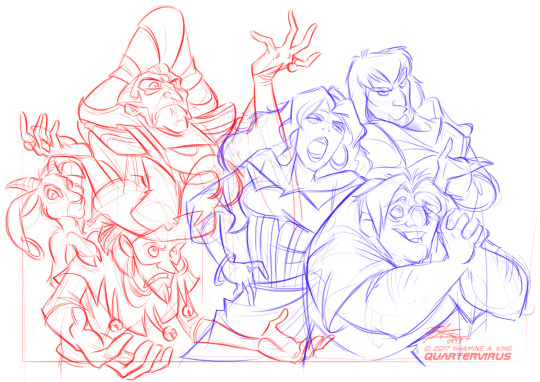
(Oh my god I have not drawn these guys in literal ages. It felt so weird!)
#blablabla#beauty and the beast#hunchback of notre dame#hond#disney#sketches#sketch#sakart#clopin#clopin troillefou#frollo#claude frollo#esmeralda#djali#quasimodo#phoebus#live action remake#realtalk#a bit of a rant#fixed my 12 pm errors
2K notes
·
View notes